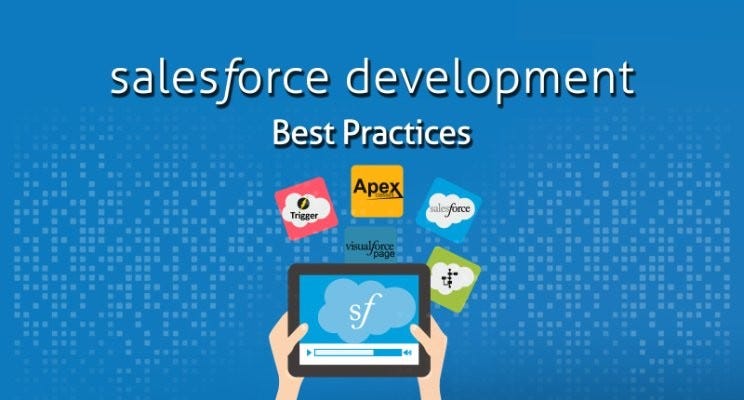
Apex Triggers:
Bulkify Your Code:
Write your triggers to handle bulk operations to avoid hitting governor limits.
Avoid using SOQL and DML statements inside loops.
Use Trigger Context Variables:
Leverage Trigger context variables (e.g., Trigger.new, Trigger.old, Trigger.newMap, Trigger.oldMap) to access and manipulate records effectively.
Keep Triggers Logic Simple:
Keep trigger logic simple and delegate complex logic to handler classes.
Follow the Single Responsibility Principle.
Avoid Hardcoding IDs:
Avoid hardcoding IDs and query for records when needed.
Use custom settings or custom metadata types for configuration.
Error Handling and Logging:
Implement proper error handling and logging.
Use try-catch blocks to handle exceptions and log them appropriately.
Avoid Recursive Triggers:
Use static variables or trigger handler patterns to prevent recursive trigger execution.
Consider using a framework like Trigger Framework to manage trigger execution.
Governor Limits:
Be mindful of Salesforce governor limits.
Use aggregate queries instead of row-level queries when possible.
Test Coverage:
Ensure your triggers have sufficient test coverage (ideally, 100%).
Cover positive and negative scenarios, bulk scenarios, and edge cases.
Use Asynchronous Processing:
Move time-consuming or non-critical logic to future methods or queueable classes to keep triggers efficient.
Apex Classes:
Use Descriptive Names:
Use meaningful and descriptive names for classes, methods, and variables.
Follow a consistent naming convention.
Follow Design Patterns:
Use design patterns like Singleton, Factory, and Strategy when applicable.
Implement the Separation of Concerns and Dependency Injection principles.
Governor Limits:
Be aware of governor limits and design your classes to avoid hitting these limits.
Consider using batch processing for large data sets.
Avoid SOQL Queries in Loops:
Avoid using SOQL queries inside loops to prevent hitting query limits.
Use collections and bulk patterns.
Exception Handling:
Implement proper exception handling to provide meaningful error messages.
Use custom exceptions when needed.
Code Comments and Documentation:
Include comments for complex code sections.
Document your classes and methods using ApexDoc or other documentation conventions.
Reuse Code:
Promote code reuse by creating utility classes and methods.
Modularize your code for better maintainability.
Test Coverage and Unit Tests:
Maintain high test coverage for your classes.
Write unit tests that cover various scenarios, including positive and negative cases.
Avoid Hardcoding:
Avoid hardcoding values; use custom settings or custom metadata types for configuration.
Security Considerations:
Follow Salesforce security best practices, such as CRUD and FLS checks.
Use the "with sharing" or "without sharing" keywords appropriately based on your security requirements.
By following these best practices, you can write more robust and efficient Apex Triggers and Classes in Salesforce, contributing to a more maintainable and scalable application.
